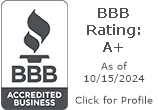Becoming a plumbing contractor in Washington state involves several steps and specific requirements to ensure you operate legally and professionally. The Washington State Department of Labor & Industries (L&I) oversees contractor licensing and regulation in the state. Here are the key steps and requirements to become a plumbing contractor in Washington:
- Meet the Minimum Requirements: To become a licensed plumbing contractor in Washington, you must meet certain minimum qualifications, including:
- Being at least 18 years old.
- Possessing a high school diploma or equivalent.
- Completing a specific amount of on-the-job training or education in the plumbing trade.
- Work Experience: You will need to accumulate work experience in the plumbing field to become a licensed contractor. The exact amount of required experience can vary based on the type of plumbing license you are seeking, such as residential, commercial, or specialty plumbing.
- Education: Depending on the type of plumbing license, you may be required to complete specific educational programs or courses in plumbing. Some programs are offered by vocational schools and technical colleges and can provide the necessary knowledge and training for your license.
- Pass the Plumbing Exam: All plumbing contractor license applicants in Washington must pass a state-approved plumbing examination. The exam tests your knowledge of plumbing principles, codes, regulations, and trade practices. You'll need to study and prepare for this exam thoroughly.
- Insurance: Plumbing contractors in Washington are generally required to have liability insurance coverage. The insurance requirements can vary depending on the type of work you do and the scale of your projects.
- Register Your Business: You should establish a legal business entity in Washington if you haven't already done so. This can be a sole proprietorship, partnership, limited liability company (LLC), or corporation. Register your business with the Washington Secretary of State and obtain a Unified Business Identifier (UBI) number.
- Apply for a Contractor License: You'll need to submit an application to the Washington State Department of Labor & Industries, pay the appropriate fees, and provide documentation of your work experience and educational qualifications.
- Background Check: Plumbing contractor license applicants in Washington typically need to undergo a criminal background check as part of the licensing process.
- Bond Requirement: Depending on the type of plumbing work you plan to perform, you may need to provide a surety bond as part of the licensing process. The bond serves as a financial guarantee to protect clients and the state.
- Renew Your License: Plumbing contractor licenses in Washington are typically valid for two years. To maintain your license, you'll need to renew it by the specified deadline and meet any continuing education requirements.
- Local Regulations: Be aware that some cities and counties in Washington may have additional licensing requirements and regulations, so it's important to check with the specific local jurisdiction where you plan to work.
It's crucial to understand that the specific requirements for becoming a plumbing contractor in Washington state can vary depending on your specific trade, location, and the scale of your projects. Therefore, it's advisable to consult with the Washington State Department of Labor & Industries and access their website for the most current and detailed information on licensing and registration. Seeking legal and financial advice from professionals with expertise in the plumbing industry can also be helpful in navigating the regulatory landscape for plumbing contractors in Washington.



